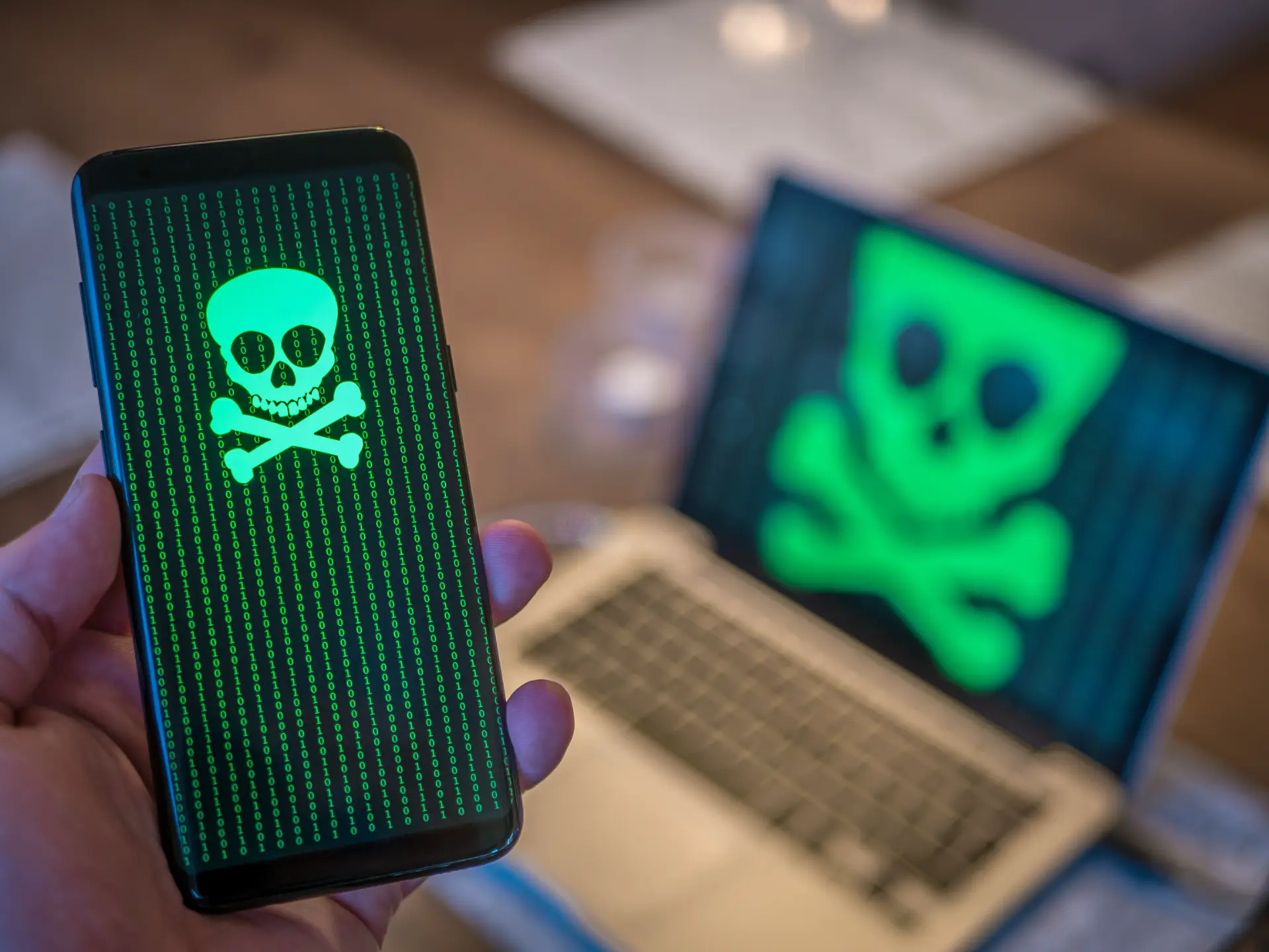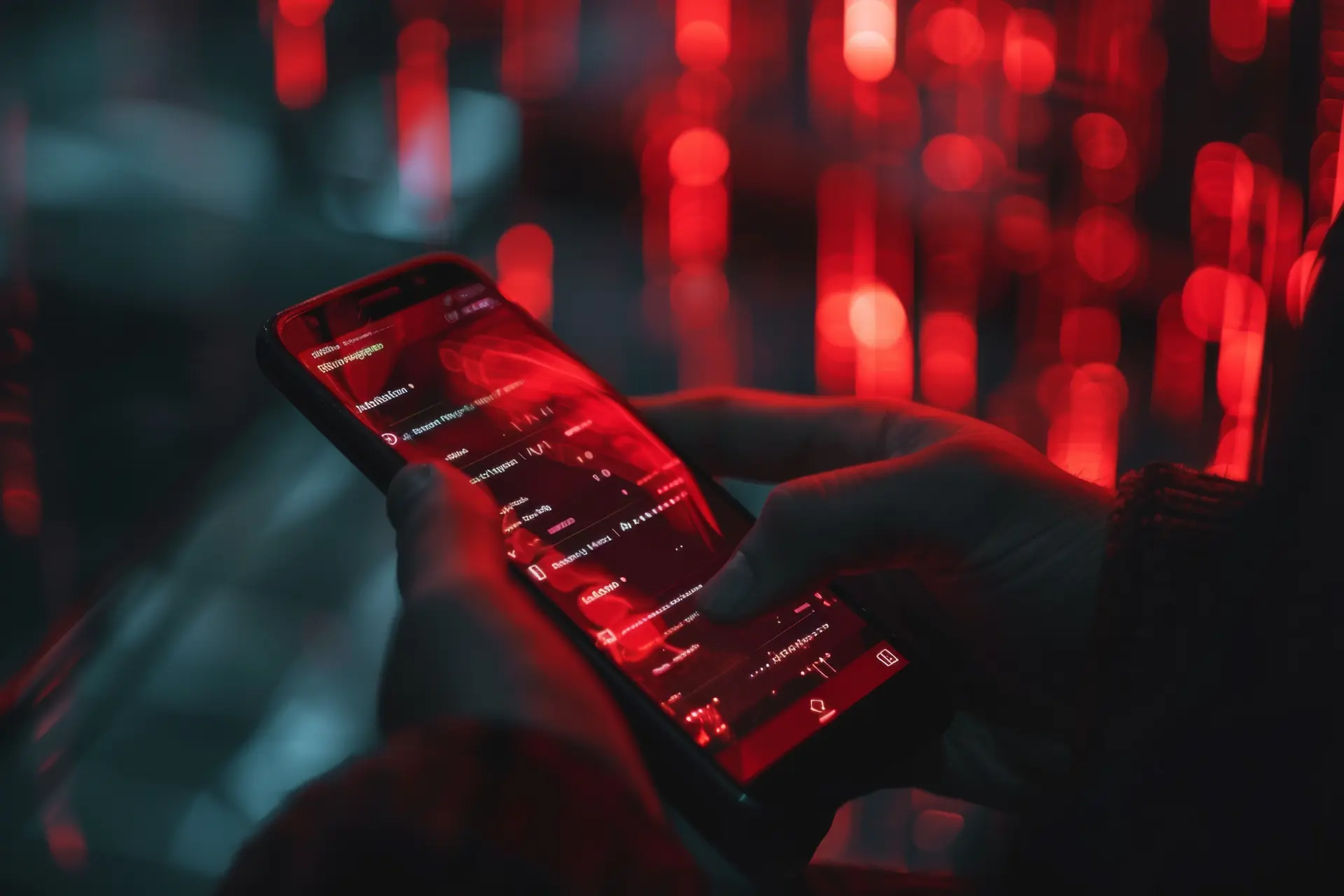Table of contents
- What is Pegasus spyware?
- How does Pegasus work and who can be targeted?
- The discovery of Pegasus spyware: Amnesty International’s security lab role
- Pegasus spyware in Italy: known cases and its use worldwide
- Pegasus spyware: how to protect yourself
- The future of digital privacy and the role of Pegasus
Pegasus spyware is a surveillance tool developed by the israeli company NSO Group.
This highly sophisticated spyware is designed to infiltrate mobile phones without leaving a trace, allowing full remote access to infected devices.
What is Pegasus spyware?
Pegasus has been described as one of the most invasive digital surveillance tools ever developed. It can obtain personal data, monitor conversations, and even activate the target device’s microphone and camera without any visible signal.
Pegasus poses a significant threat to journalists, human rights activists, political dissidents, and lawyers worldwide. Several targeted states have used Pegasus to monitor prominent figures in the human rights and political fields.
Its discovery raised global concerns, shedding light on a real surveillance crisis, as highlighted by the Pegasus Project, an international investigative journalism initiative that revealed the widespread use of Pegasus to spy on high-profile individuals.
How does Pegasus work and who can be targeted?
Pegasus spyware is designed to infect both iOS and Android devices by exploiting unknown or poorly monitored vulnerabilities in the operating systems.
Once infiltrated, Pegasus can act discreetly and collect a wide range of data: messages, calls, emails, browsing history, GPS location, photos, and videos.
This means that any infected user loses full control of their device, allowing Pegasus to collect information in the background.
Pegasus primarily targets individuals of strategic interest to governments and organizations. The main targets include journalists, activists, lawyers, and politicians.
Example:
The Pegasus Project revealed how thousands of phone numbers belonging to these categories had been selected for potential surveillance operations.
One of the most concerning features is Pegasus’s ability to attack devices through common apps like iMessage and FaceTime.
These channels have been exploited to send malicious links or files that allow Pegasus to access seemingly secure devices.
The discovery of Pegasus spyware: Amnesty International’s security lab role
The severity of Pegasus spyware was revealed thanks to the work of Amnesty International’s security lab, which collaborated with the Pegasus Project to examine and verify infected devices.
Amnesty International’s research showed that Pegasus was active in at least 45 countries, including Italy, the United States, and several countries in Europe, Asia, and the Middle East.
Through thorough analysis, the lab managed to reconstruct how Pegasus was used to monitor and control individuals of political and social importance.
Amnesty International stated that the discovery of Pegasus represents one of the most serious attacks on privacy and freedom of expression ever detected.
The investigative technique used by Amnesty is innovative, involving an analysis of network traffic from infected devices, identifying specific anomalies in communication patterns.
This type of investigation provided concrete evidence of the spyware’s spread.
Pegasus spyware in Italy: known cases and its use worldwide
In Italy, specific cases of Pegasus infection have not yet been publicly reported, but security experts believe that the country is not immune to this risk, especially considering its proximity to political allies of countries known to use the spyware.
Pegasus can be exploited by governments to monitor individuals considered dangerous or politically inconvenient, and its presence could represent an increasing threat to the Italian population as well.
In the United States, Pegasus has attracted particular attention due to the possibility that American citizens or residents have been monitored through this technology.
This has led to discussions about new regulations to control the sale and use of surveillance software developed by private companies like NSO Group.
Other European countries, as well as those in the Middle East and Asia, have also been infected by Pegasus, generating a debate on the legality and ethics of using such powerful and intrusive spyware.

Pegasus spyware: how to protect yourself
Pegasus spyware poses a challenge to cyber security, given its ability to bypass many traditional protection measures. However, there are some preventive strategies that can help reduce the risk of infection:
- Regularly update the operating system
Installing the latest security patches on iOS and Android is essential, as many vulnerabilities exploited by Pegasus have been patched through recent updates.
- Avoid suspicious links
Do not open links or files received from unknown or suspicious senders, as Pegasus is often installed through phishing messages.
- Only install verified apps
Using only applications from official stores like Google Play or the App Store reduces the likelihood of encountering malware, including Pegasus.
- Use VPNs
VPNs encrypt traffic and can prevent sensitive data from being intercepted. While they do not provide direct protection against Pegasus, VPNs add a layer of security that can be useful against surveillance.
Defending against Pegasus requires constant vigilance. However, it is important to remember that given its sophistication, it may be impossible to guarantee absolute protection against this type of spyware.
The future of digital privacy and the role of Pegasus
The Pegasus case represents a clear signal of how surveillance technology can be used for controversial purposes.
The growing use of spying tools on mobile phones has led to a review of regulations and an increase in security measures adopted by tech companies and governments.
The debate on the use of Pegasus reflects a crucial issue: how to balance national security with the right to privacy.
Several organizations, including Amnesty International’s lab, have called for stricter regulations on the use of digital surveillance tools, emphasizing the urgency of establishing clear limits and international laws to ensure that technologies like Pegasus are not used to violate human rights.
In conclusion…
Pegasus spyware is one of the most powerful digital surveillance tools ever developed, capable of penetrating the most secure systems and gaining full access to victims’ devices.
Its discovery has highlighted the growing risk of surveillance and generated a debate on the need for more effective security measures.
The issue of digital privacy and the protection of human rights is set to remain central in the coming years.
Questions and answers
- What is Pegasus spyware?
It is a powerful spyware developed by the Israeli company NSO Group to monitor mobile devices. - How does Pegasus spyware spread?
It spreads through vulnerabilities in iOS and Android, often using malicious messages or links in common apps. - Can Pegasus spyware infect a phone in Italy?
Yes, it could be used in Italy to monitor individuals of political or social interest. - Who are the main targets of Pegasus spyware?
Journalists, activists, lawyers, and politicians are among the most targeted by Pegasus. - What is the origin of Pegasus spyware?
It was developed by NSO Group, an Israeli cyber security company. - How can I protect myself from Pegasus spyware?
Updating the operating system, avoiding suspicious links, and using trusted apps are useful preventive measures. - Which states have used Pegasus?
Some countries in the Middle East, Asia, and other global states have used Pegasus. - What role did Amnesty International play in the Pegasus scandal?
Amnesty investigated and published evidence of Pegasus’s spread through its security lab. - Can Pegasus access all information on a phone?
Yes, it can access photos, messages, calls, and even activate the camera and microphone. - What are the main risks of Pegasus spyware?
Total loss of privacy, remote control of the device, and the risk of continuous surveillance.

